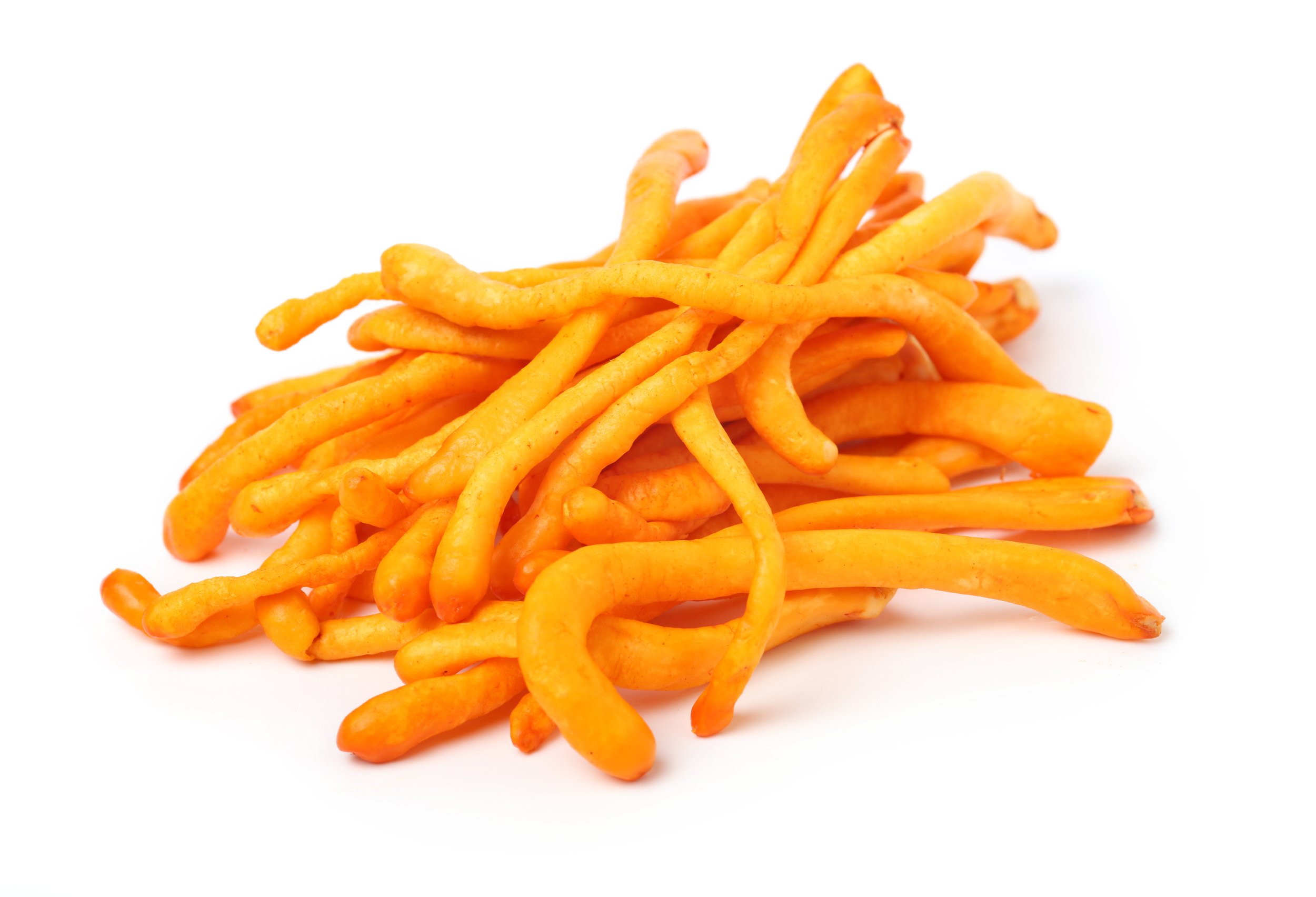Discover the natural remedies for burnout recovery in our latest blog. Learn how Reishi and Cordyceps mushrooms can help you regain energy, reduce stress, and restore balance. Find out how to incorporate these powerful adaptogens into your daily routine for a revitalized and rejuvenated you.
In our fast-paced modern society, burnout has become an all-too-common consequence of chronic stress and overexertion. The relentless demands of work, coupled with personal responsibilities, can leave us feeling physically and mentally drained. Fortunately, nature offers an array of remedies to help us bounce back and reclaim our vitality. Among these natural wonders are adaptogens, powerful substances that help our bodies adapt and cope with stress. In this blog, we delve into the extraordinary healing properties of two adaptogenic mushrooms—Reishi and Cordyceps. By exploring their unique therapeutic qualities, we uncover how these fungi can play a pivotal role in replenishing our energy, restoring balance, and facilitating a full recovery from burnout.
The Science behind Burnout: Understanding the Impact on Your Health
Burnout is not merely a result of feeling overwhelmed or exhausted; it is a complex condition with significant consequences for our overall health and well-being. To comprehend the true extent of burnout, it is essential to delve into the scientific underpinnings that explain its impact on our bodies. Research has shown that chronic stress and burnout can disrupt the delicate balance of our neuroendocrine system, leading to dysregulation of important physiological processes (1). Persistent stress triggers the release of stress hormones, such as cortisol, which can impair immune function, disrupt sleep patterns, and hamper cognitive performance (2). Furthermore, burnout has been linked to an increased risk of cardiovascular disease, depression, and other mental health disorders (3). Understanding the intricate relationship between burnout and our health is crucial in identifying effective strategies for recovery. By acknowledging the scientific evidence, we can gain valuable insights into the profound repercussions of burnout and the urgency of implementing holistic interventions.
Is Burnout a Medical Condition?
Burnout is a widespread phenomenon that affects individuals across various professions and walks of life. While it is not classified as a medical condition in the Diagnostic and Statistical Manual of Mental Disorders (DSM-5), it is recognized as a serious occupational hazard with profound physical and psychological implications. Identifying the signs of burnout is crucial in recognizing its impact on overall well-being. Burnout is characterized by a state of mental exhaustion and emotional exhaustion, often resulting from prolonged exposure to chronic work-related stress (4). Burnout symptoms can manifest as a persistent sense of fatigue, reduced productivity, detachment from work, and increased cynicism or depersonalization (5). It is important to acknowledge that burnout symptoms can extend beyond the workplace, affecting personal relationships and overall quality of life. While burnout may not have a specific medical diagnosis, its detrimental effects highlight the urgency of addressing this multifaceted issue.
How to Use Functional Mushrooms for Burnout?
Functional mushrooms, also known as medicinal mushrooms, have gained recognition for their adaptogenic properties in combating stress and promoting overall well-being. These natural adaptogens have been used for centuries in traditional medicine to support the body's ability to adapt and resist stressors. When it comes to burnout, incorporating mushroom adaptogens into your routine can be a valuable strategy for recovery. Reishi (Ganoderma lucidum) and Cordyceps (Cordyceps sinensis) mushrooms, in particular, have shown promising effects in mitigating the symptoms of burnout. Reishi mushrooms possess calming properties that can help reduce anxiety and improve sleep quality, while Cordyceps mushrooms offer energizing benefits, combating fatigue, and enhancing endurance (6). These functional mushrooms can be consumed in various forms, such as extracts, powders, or teas, making them convenient additions to your daily regimen.
How Reishi Mushroom Helps Combat Stress
Reishi mushroom has long been revered for its remarkable stress-reducing properties, making it a valuable tool in combating burnout. Scientific research has shed light on the mechanisms behind Reishi's stress-modulating effects. Firstly, Reishi contains bioactive compounds known as triterpenes, particularly ganoderic acids, which have demonstrated potent anti-inflammatory and neuroprotective properties (7). These triterpenes interact with various signaling pathways in the body, including the hypothalamic-pituitary-adrenal (HPA) axis, which plays a central role in the stress response (8). By regulating the HPA axis, Reishi can help modulate cortisol levels and restore the delicate balance of the stress response system (9). Additionally, Reishi exhibits antioxidant activity, protecting against oxidative stress-induced damage to cells and tissues (10). Furthermore, Reishi's adaptogenic qualities support the body's resilience to stress by promoting homeostasis and enhancing the body's adaptive capacity (11). These combined mechanisms contribute to Reishi's ability to combat stress and its associated detrimental effects, making it an invaluable ally in the journey towards recovering from burnout.
Exploring the Benefits of Cordyceps Mushroom for Burnout Recovery
Cordyceps mushroom is a powerful natural remedy that holds great promise in the realm of burnout recovery. Scientific investigation has unraveled the mechanisms underlying Cordyceps' potential benefits in combating burnout. One key mechanism lies in Cordyceps' ability to enhance cellular energy production through its bioactive compounds, including cordycepin and adenosine (12). By increasing adenosine triphosphate (ATP) synthesis, Cordyceps supports mitochondrial function and improves energy metabolism, combating the debilitating fatigue associated with burnout (13). Furthermore, Cordyceps has been found to exert potent antioxidant and anti-inflammatory effects (14). These properties help protect against oxidative stress and reduce inflammation, which are often elevated during burnout (15). Cordyceps also exhibits adaptogenic properties, aiding the body in adapting to and coping with stressors, thereby supporting overall well-being (16). By harnessing these mechanisms, Cordyceps mushroom offers a multifaceted approach to burnout recovery, addressing both physical and mental aspects of exhaustion.
Incorporating Reishi and Cordyceps Mushrooms into Your Daily Routine
To harness the potential benefits of Reishi and Cordyceps mushrooms as adaptogens for stress and burnout recovery, incorporating them into your daily routine can be a transformative practice. One convenient way to integrate these mushrooms is through the use of mushroom extracts or supplements. Reishi mushroom extracts can be added to your favorite beverages such as coffee, tea, or smoothies, or taken as capsules. Cordyceps mushroom extract can be similarly incorporated into your daily routine, offering a boost of energy and vitality. Cordyceps supplements and Reishi supplements are readily available in capsule or tablet form, providing a convenient option for those with busy lifestyles. Start by introducing a small dosage of these adaptogenic mushrooms into your routine and gradually increase as needed. Remember to consult with a healthcare professional before starting any new supplementation regimen.
Eversio Wellness carries 100% fruiting body only mushroom extracts, and they consistently practice transparency to their consumers by sharing the COAs (Certificate of Analysis) of each product. The COAs reassure consumers that the percentage of compounds that are claimed to be in the products is scientifically confirmed through lab testing. Eversio Wellness currently carries both Reishi and Cordyceps mushroom extracts in capsular form.
We hope you have found this article informative. If you have any questions or comments, please feel free to leave them in the comment section below!
By Silvana Jakupovic — BSc and 4th Year Student of Naturopathic Medicine (CCNM-Boucher)
References:
1. McEwen BS. Stress, adaptation, and disease: Allostasis and allostatic load. Ann N Y Acad Sci. 1998;840:33-44. doi:10.1111/j.1749-6632.1998.tb09546.x
2. McEwen BS. Protective and damaging effects of stress mediators: central role of the brain. Dialogues Clin Neurosci. 2006;8(4):367-381.
3. Melamed S, Shirom A, Toker S, Berliner S, Shapira I. Burnout and risk of cardiovascular disease: evidence, possible causal paths, and promising research directions. Psychol Bull. 2006;132(3):327-353. doi:10.1037/0033-2909.132.3.327
4. Maslach C, Jackson SE. The measurement of experienced burnout. J Occup Behav. 1981;2(2):99-113. doi:10.1002/job.4030020205
5. Bianchi R, Schonfeld IS, Laurent E. Burnout-depression overlap: a review. Clin Psychol Rev. 2015;36:28-41. doi:10.1016/j.cpr.2015.01.004
6. Lull C, Wichers HJ, Savelkoul HFJ. Anti-Inflammatory and Immunomodulatory Properties of Fungal Metabolites. Mediators Inflamm. 2005;2005(2):63-80. doi:10.1155/MI.2005.63
7. Gao Y, Zhou S, Jiang W, Huang M, Dai X. Effects of ganopoly (a Ganoderma lucidum polysaccharide extract) on the immune functions in advanced-stage cancer patients. Immunol Invest. 2003;32(3):201-215. doi:10.1081/IMM-120018857
8. Lai CS, Yu MS, Yuen WH, et al. The neuroprotective effects of ganoderma lucidum polysaccharides against oxidative stress-induced neuronal apoptosis. Int J Mol Sci. 2014;15(5):7495-7510. doi:10.3390/ijms15057495
9. Jin X, Ruiz Beguerie J, Sze DM, Chan GC. Ganoderma lucidum (Reishi mushroom) for cancer treatment. Cochrane Database Syst Rev. 2016;4(4):CD007731. doi:10.1002/14651858.CD007731.pub3
10. Lin ZB. Cellular and molecular mechanisms of immuno-modulation by Ganoderma lucidum. J Pharmacol Sci. 2005;99(2):144-153. doi:10.1254/jphs.crj05014x
11. Wachtel-Galor S, Tomlinson B, Benzie IFF. Ganoderma lucidum ("Lingzhi"), a Chinese medicinal mushroom: biomarker responses in a controlled human supplementation study. Br J Nutr. 2004;91(2):263-269. doi:10.1079/BJN20041083
12. Koh JH, Kim KM, Kim JM, Song JC, Suh HJ. Antifatigue and antistress effect of the hot-water fraction from mycelia of Cordyceps sinensis. Biol Pharm Bull. 2003;26(5):691-694. doi:10.1248/bpb.26.691
13. Chen YJ, Shiao MS, Wang SY. The antioxidant activity of sporophores of Paecilomyces hepiali grown on Chinese caterpillar fungi. Life Sci. 2001;68(9):1067-1082. doi:10.1016/s0024-3205(00)01016-7
14. Yu HM, Wang BS, Huang SC, et al. Antioxidant and antifatigue activities of the polysaccharides isolated from Cordyceps militaris. J Ethnopharmacol. 2006;108(3):457-464. doi:10.1016/j.jep.2006.05.027
15. Chen YJ, Huang HC, Chien CT. Antioxidant abilities and lipid peroxidation in the liver from exercise-trained rats. Life Sci. 2000;66(12):L149-L157. doi:10.1016/s0024-3205(00)00608-1
16. Li SP, Yang FQ, Tsim KW. Quality control of Cordyceps sinensis, a valued traditional Chinese medicine. J Pharm Biomed Anal. 2006;41(5):1571-1584. doi:10.1016/j.jpba.2006.01.046

